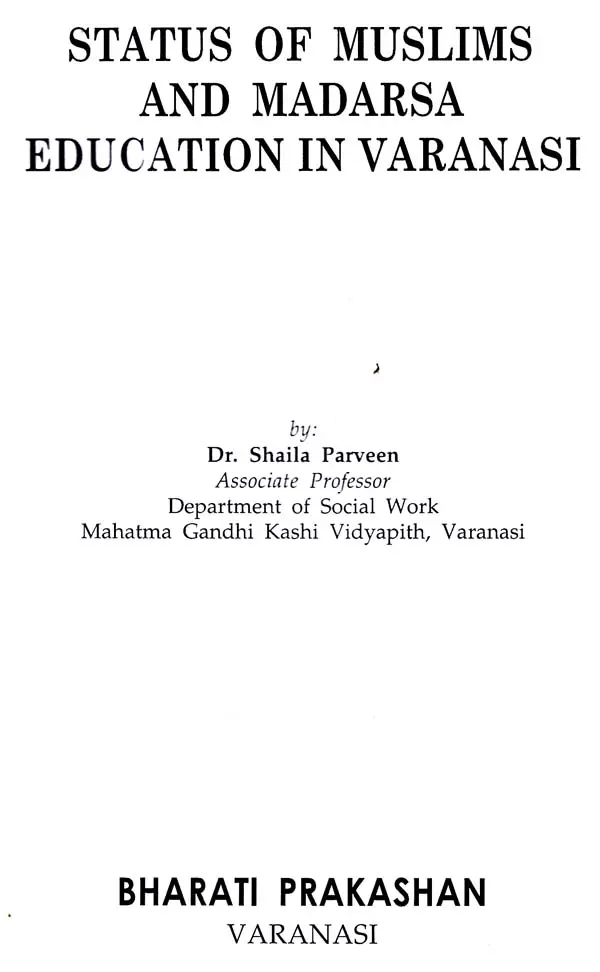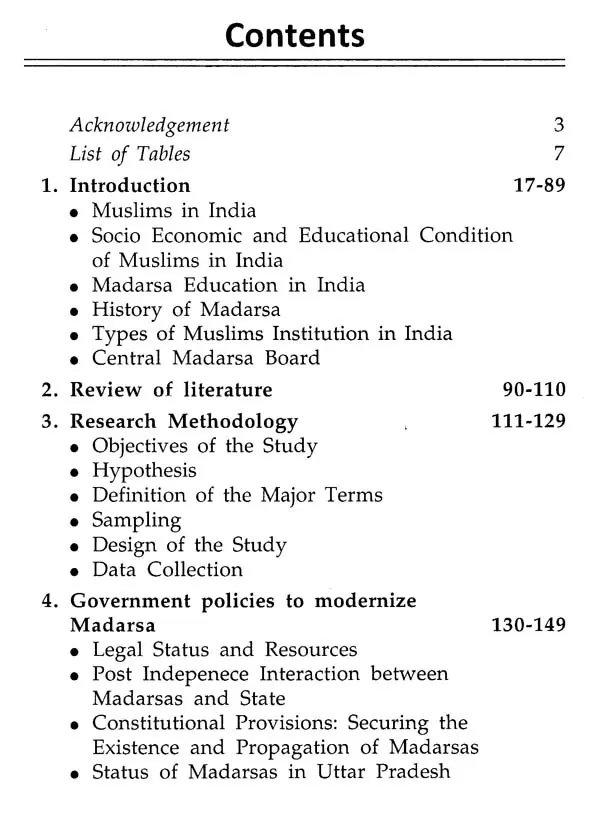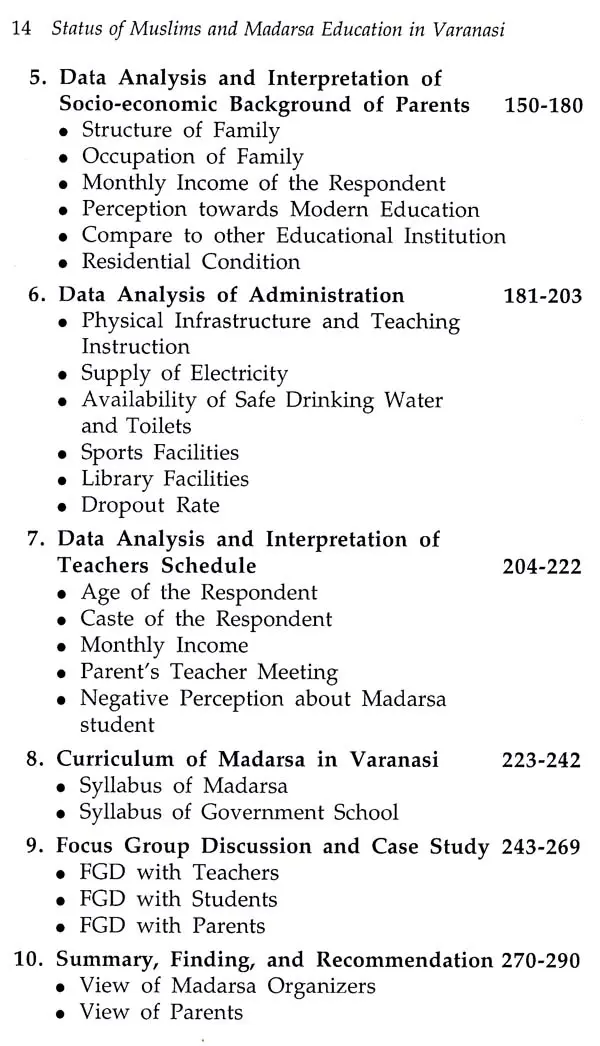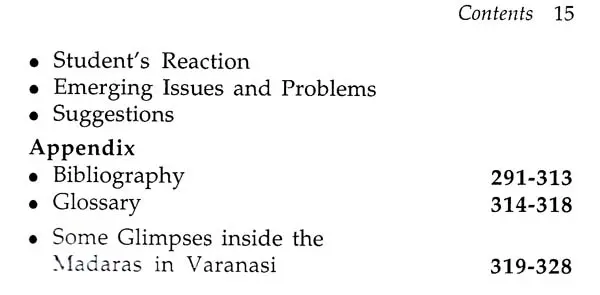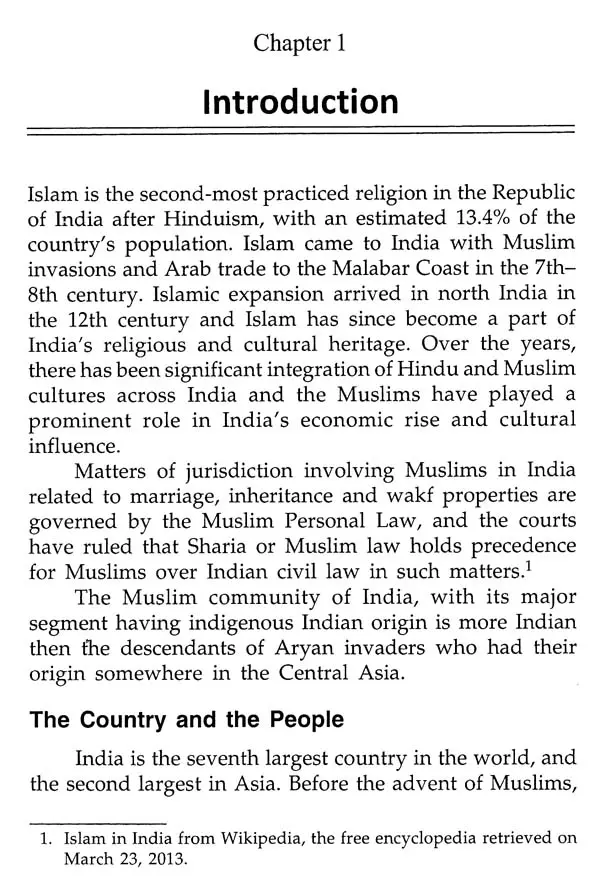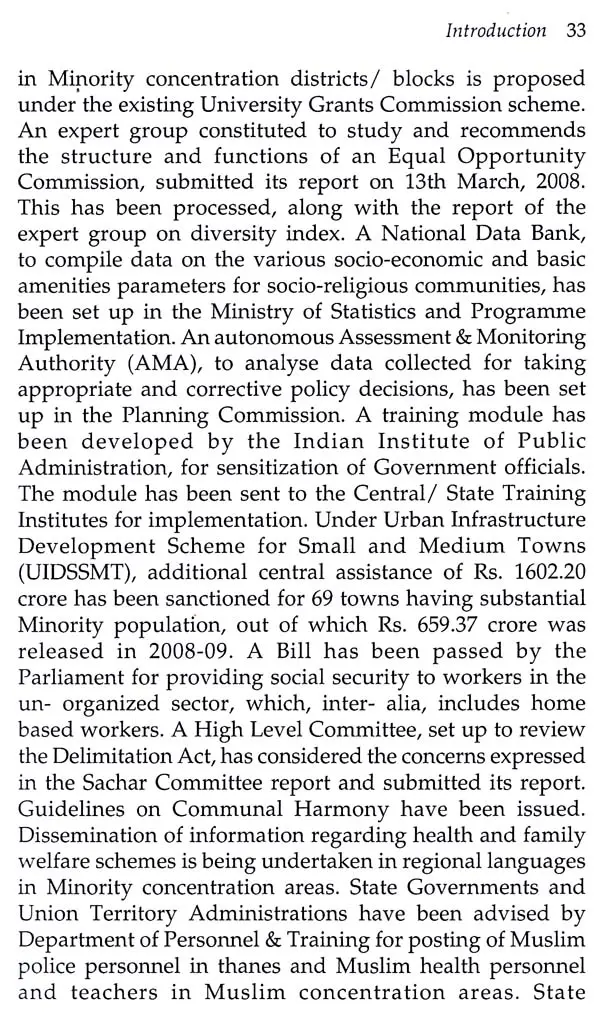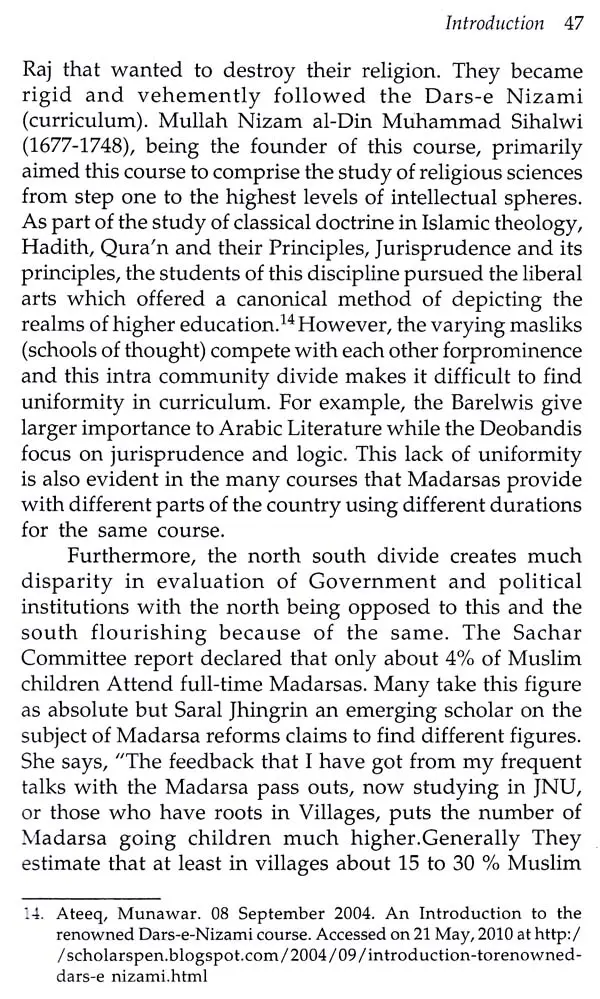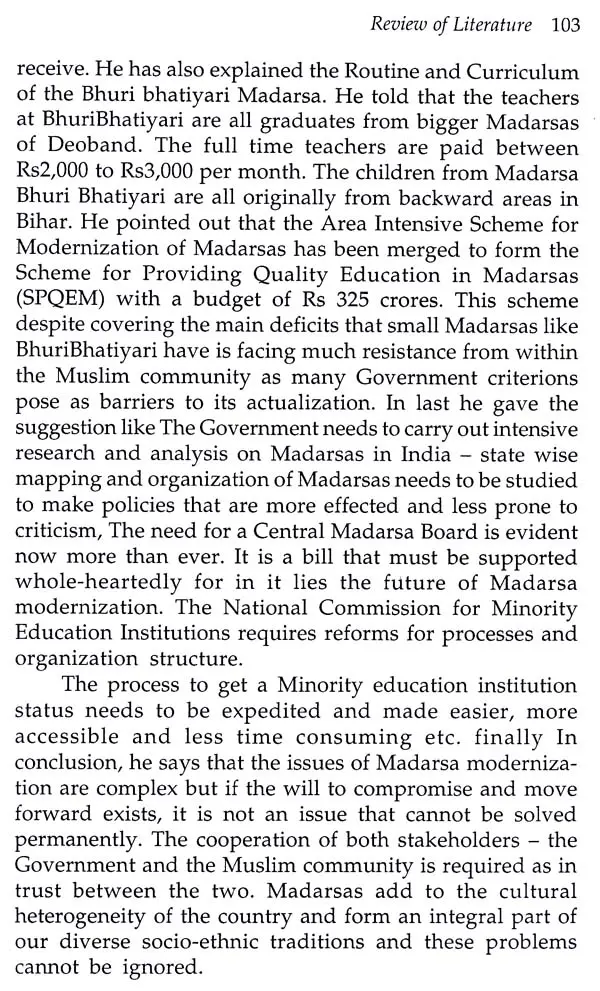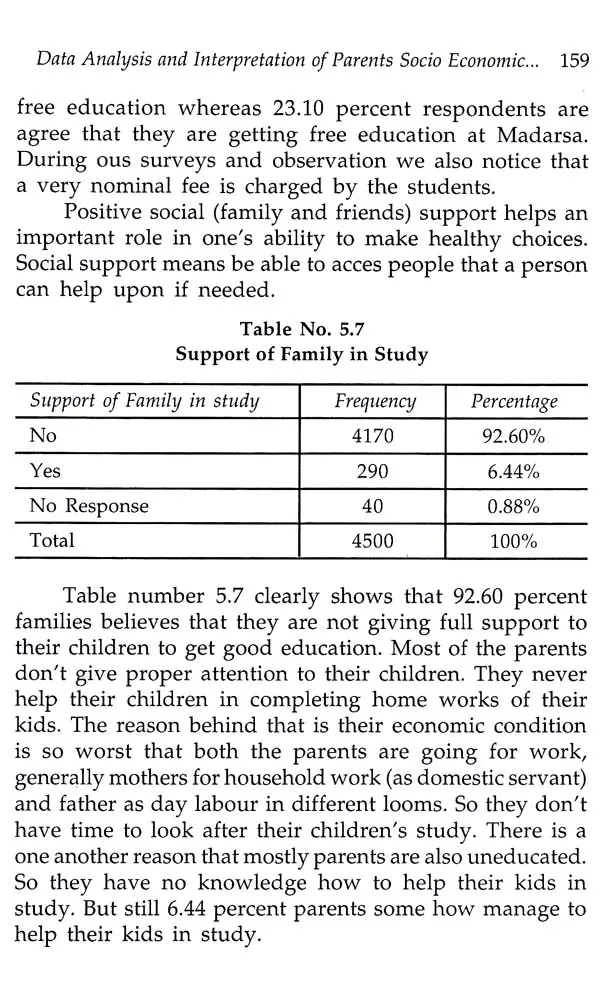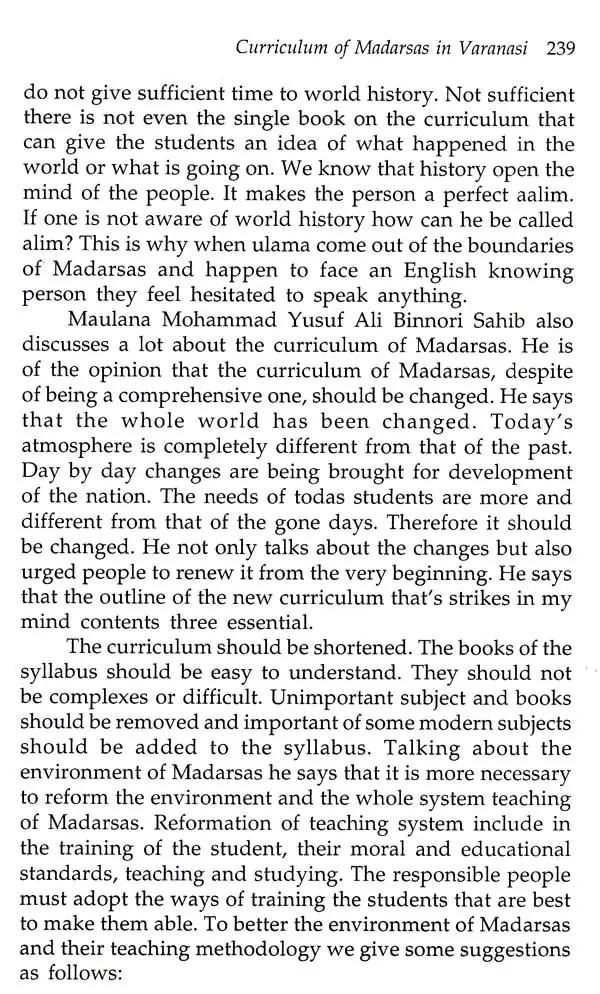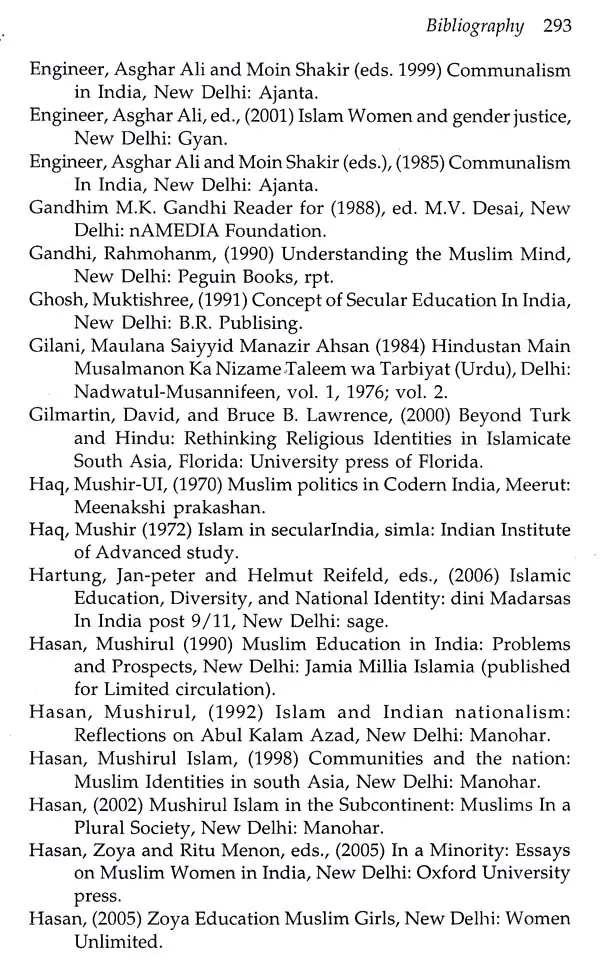
Status of Muslims and Madarsa Education in Varanasi
Book Specification
| Item Code: | UAL241 |
| Author: | Dr. Shaila Parveen |
| Publisher: | BHARTI PRAKASHAN, VARANASI |
| Language: | English |
| Edition: | 2017 |
| ISBN: | 9789380550879 |
| Pages: | 328 |
| Cover: | HARDCOVER |
| Other Details | 8.60 X 5.60 inch |
| Weight | 520 gm |
Book Description
Madarsas are popular educational institutions situated all over Varanasi. They provide an avenue of educating children in rural and urban areas. From primary to post graduate levels, there are 110 Madarsas in the Varanasi, with a total of 41,138 students and 1475 teachers, Out of 41,138 students, 21,191 are male and 20,612 are female students and out of 1475 teachers, 829 are male and 646 are female teachers. Mostly students have poor socio economic condition. Their parent's monthly income was below Rs. 5000.
The present study presents a seven pronged strategy that includes: (a) strategy of integration and diversity to retain the uniqueness of Madarsa education within the unified stream; (b) strategy of curriculum and pedagogy development; (c) strategy of capacity development; (d) strategy of competitive development through. introduction of market elements for self motivated reforms; (e) strategy of participative development; (f) strategy of inclusive development; and (g) strategy of dealing with the issue of militancy, as a separate security issue, not to be confused with the modernization of Madarsas.
**Contents and Sample Pages**
